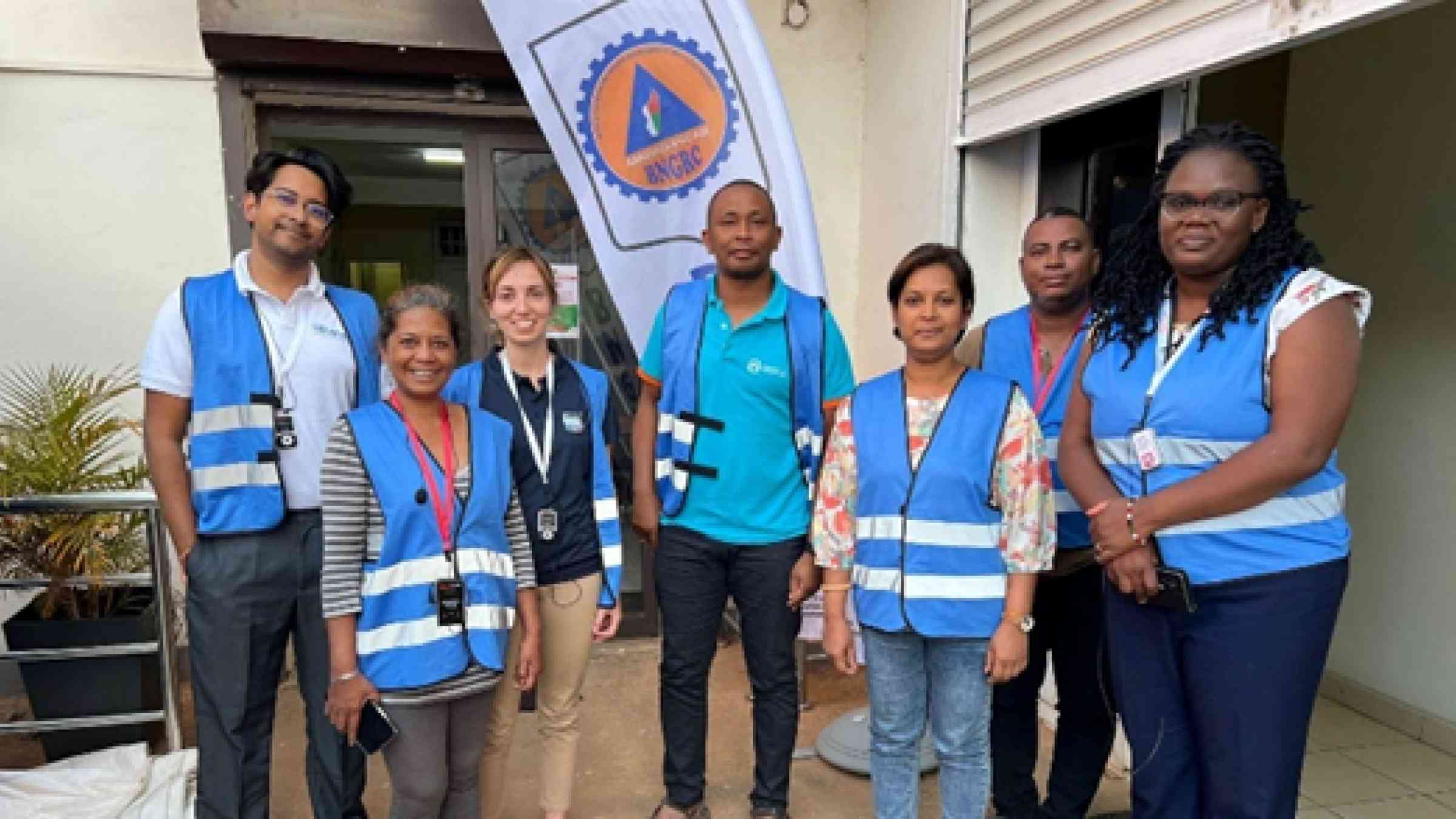Indian Ocean countries put their preparedness to the test

From August to October 2024, UNDRR organized three table-top exercises (TTXs) in Mauritius, Madagascar and Seychelles. TTXs simulate real-world preparedness and emergency scenarios to support operationalizing multi-hazard early warning systems and early action procedures. Using a format tailored to the specific context of each country, the exercises aimed at testing, evaluating, and improving disaster preparedness and early warning and early action systems.
The TTX was an action in the roadmap that outlines a structured approach to enhancing disaster management capabilities through collaboration, knowledge exchange, and institutional strengthening across the Indian Ocean region. It leveraged successful models from the Caribbean, based on a study tour that took place in June 2024 in Barbados with the participation of Indian Ocean
Mauritius held a two-part training, from 19 to 23 August, in Port Louis testing hazards ranging from a tropical cyclone threat to storm surges, oil spillage, fire outbreak and power outage. It was followed by Madagascar with a national and regional TTX and functional exercise with skill drills, simultaneously in Toamasina and Antananarivo, on cyclone, floods, and a technical accident, from 17 to 19 September. The last exercise took place in Seychelles and simulated an unprecedented mix of meteorological (heavy rainfall), and hydrological (flood and landslide) from 2 to 4 October. Overall, more than 350 participants took part in the simulations.
"Together, we can build a safer, more resilient Mauritius, where communities are empowered, systems are robust, responses are timely and effective, risks are reduced, and development is sustainable" - Ms. Lisa Simrique Singh, UN Resident Coordinator for Mauritius and Seychelles
The events gathered representatives from various institutions - disaster management agencies, Red Cross Societies, police, meteorological agencies, civil protection - and sectors such as education, health, and public utility. The TTX also simulated unprecedented mixes of hazards which allowed for testing of operational processes, coordination mechanisms, and communication procedures at all stages of an extreme event.
The exercises highlighted the importance of South-South cooperation as a strategic tool for Island States. In Madagascar, this was underscored by the involvement of delegations from Seychelles and Comoros. While Trinidad and Tobago's Major General Rodney Smart, Chief Executive Officer of the Office of Disaster Preparedness and Management participated in the Mauritius TTX.
The commitment of the humanitarian community alongside the government and the active participation of the private sector were two takeaways from the Madagascar TTX.
"We are a very committed company. We carry out numerous awareness-raising campaigns, assessments, and activities to help build the capacity of local players to deal with emergency situations" - Mr Nicolas Descraques, Manager of Social Investment & Community Engagement, Ambatovy company
Recommendations and follow-up actions were developed and UNDRR will continue providing technical expertise and support to Indian Ocean countries to strengthen their resilience.
These trainings were co-organized with United Nations University's Institute for Environment and Human Security (UNU-EHS); CIMA Foundation; Regional Centre for Mapping of Resources for Development (RCMRD); the United Nations Office for the Coordination of Humanitarian Affairs (UNOCHA); Indian Ocean Commission (IOC); Plateforme d'Intervention Régionale de l'Océan Indien (PIROI); Madagascar Bureau National pour la Gestion des Risques et Catastrophes (BNGRC); Mauritius National Disaster Risk Reduction and Management Centre (NDRRMC), and Seychelles Disaster Risk Management Division (DRMD).
Trainings in Seychelles and Mauritius were part of the "Resilience Building and Disaster Response Management in the Indian Ocean" (RDRM-IO) programme, co-funded by the European Union partnership with the IOC. In Madagascar multi-donor funding was utilised from the European Union funded RDRM-IO, USAID and German Federal Foreign Office.